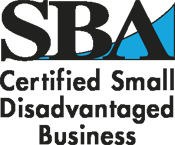According to a study by Cybersecurity Ventures, cybercrime will cost the world $10.5 trillion annually by 2025. Cybersecurity threats are becoming more prominent in today’s digitalizing world. According to data from Microsoft, over 71 percent of companies admitted to falling victim to cyberattacks in 2014. As a result, organizations emphasized cybersecurity solutions to protect sensitive data and assets.
According to IBM’s 2021 data breach report, data breach costs businesses worldwide $4.24 million on average. However, by implementing a zero-trust security approach, organizations reduced average breach costs by $1.76 million.
Hence, it’s apparent that implementing a zero-trust security approach is crucial for businesses in the modern world. Naturally, you might be wondering what zero-trust security entails.
Unlock the future of intelligent applications with our cutting-edge Generative AI integration services!
What is Zero Trust Security?
Before zero-trust security came into the mix, organizations relied on a trusting and then verifying approach. This approach revolved around creating a robust defensive perimeter to protect organizations from external attacks. However, it operated under the principle that machines, users, and applications within an organization’s boundaries were trustworthy. However, zero-trust security adopts the opposite approach. It considers all resources, users, and applications to be external to an organization’s perimeter. Therefore, zero-trust security makes organizations more secure by presuming that everything is inherently risky.
Zero-trust is a security concept that operates on the belief that companies must not trust anything they receive from within or outside their perimeters. Zero-trust works under the notion that it’s best to refrain from providing access to IP addresses, machines, or anything similar without receiving verification first. Instead, the model focuses on organizations providing access after securing verification. Once organizations have vetted users, IP addresses, or machines, then they should grant them access. Under a zero-trust framework, all users have to receive authentication and authorization before they can access applications and data.
How Does Zero Trust Work?
Zero-trust security frameworks work by integrating various advanced technologies. For instance, to successfully execute a zero-trust security framework, you’ll have to combine multi-factor authentication, endpoint security, cloud workload technology, and identity protection. All of these technologies will work unitedly to verify an IP address or machine. Likewise, they’ll also help assess credentials for users before providing them access to your given network.
Unlike traditional security frameworks, zero-trust security works by continuously vetting users and machines. To successfully implement this framework, you’ll need to ensure you’re monitoring and validating access requests in real-time.
How Can Your Organization Benefit from Zero Trust Security?
As enterprises move to cloud-based systems, all about zero trust security is becoming more invaluable than ever. Aside from the cost benefits cited above, zero-trust security frameworks have various other benefits. For starters, an ESG research report shows that 43 percent of North American organizations reported increases in their security operations centers’ efficiency after adopting zero trust security frameworks.
In addition, organizations have needed to shore up their security following the COVID-19 pandemic. As more and more employees work from home, security concerns are arising for businesses. However, a zero-trust model eliminates these security issues since it ensures that everything and everyone connecting an organization’s cloud infrastructure has the necessary authorization.

Small Disadvantaged Business
Small Disadvantaged Business (SDB) provides access to specialized skills and capabilities contributing to improved competitiveness and efficiency.
Make Your Organization Safer from Cyberattacks with Cloud Computing Technologies about Zero Trust Security
Cloud computing technologies is a service-disabled veteran-owned small business that has been operating for over 20 years. The company boasts remarkable credentials having completed over 180 Federal and DoD contract task orders. Cloud Computing Technologies can help make your organization more secure by implementing a zero-trust security solution. Visit our website to learn more.
Further blogs within this Everything You Need to Know About Zero Trust Security category.






